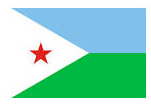The UNFCCC Secretariat has reported that Djibouti is the 55th Party to formally submit its intended nationally determined contribution (INDC), which communicates the Party's intention to reduce greenhouse gas (GHG) emissions in 2030 by 40%, compared to projections in Djibouti's reference scenario.
The Party adds that an additional 20% reduction could be achieved, conditional on new international funding, such as could be provided by the Green Climate Fund (GCF).
 14 August 2015: The UNFCCC Secretariat has reported that Djibouti is the 55th Party to formally submit its intended nationally determined contribution (INDC), which communicates the Party’s intention to reduce greenhouse gas (GHG) emissions in 2030 by 40%, compared to projections in Djibouti’s reference scenario. The Party adds that an additional 20% reduction could be achieved, conditional on new international funding, such as could be provided by the Green Climate Fund (GCF).
14 August 2015: The UNFCCC Secretariat has reported that Djibouti is the 55th Party to formally submit its intended nationally determined contribution (INDC), which communicates the Party’s intention to reduce greenhouse gas (GHG) emissions in 2030 by 40%, compared to projections in Djibouti’s reference scenario. The Party adds that an additional 20% reduction could be achieved, conditional on new international funding, such as could be provided by the Green Climate Fund (GCF).
The INDC covers all economic sectors and includes the following gases: carbon dioxide (CO2); methane (CH4); and nitrous oxide (N2O). The targeted sectors for mitigation are energy, industrial processes, agriculture and waste.
The country estimates that it will need to invest US$3.8 billion, in collaboration with the international community, to reach its target. Its unconditional mitigation goal is equivalent to reducing emissions by 1.8 million metric tons of CO2-equivalent (MtCO2e), according to the INDC. The INDC further explains that, dependent on supplemental funding of US$1.6 billion, the country could lower emissions in 2030 by another 0.9 MtCO2e, bringing the 2030 emissions level close to that of 2o10.
On adaptation, the country outlines a number of plans and programmes which align with its overall goals for development, such as reducing vulnerability to droughts, adapting to sea-level rise, developing water access, protecting biodiversity and reinforcing the resilience of rural populations. The INDC also emphasizes the rising costs of adaptation under progressively higher temperature-rise scenarios and calls for international support for adaptation, according to the principle of common but differentiated responsibility (CBDR).
All Parties to the UNFCCC are expected to submit INDCs in advance of the Paris Climate Change Conference, which will take place in November-December 2015. Those submitted by 1 October 2015 will be included in a synthesis report on their aggregate effect by 1 November 2015. Parties are anticipated to agree on a global climate change agreement to take effect in 2020 at the Paris Climate Change Conference. [UNFCCC Press Release] [Djibouti’s INDC] [UNFCCC INDC Portal]